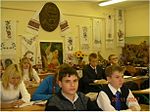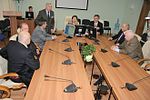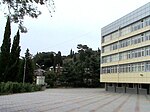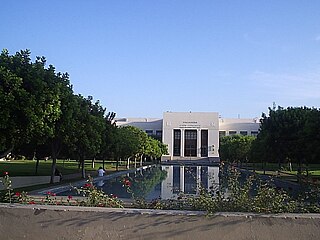
A community college is a type of educational institution. The term can have different meanings in different countries: many community colleges have an “open enrollment” for students who have graduated from high school. The term usually refers to a higher educational institution that provides workforce education and college transfer academic programs. Some institutions maintain athletic teams and dormitories similar to their university counterparts.

Education in Canada is for the most part provided publicly, funded and overseen by federal, provincial, and local governments. Education is within provincial jurisdiction and the curriculum is overseen by the province. Education in Canada is generally divided into primary education, followed by secondary education and post-secondary. Within the provinces under the ministry of education, there are district school boards administering the educational programs.
Ukrainization is a policy or practice of increasing the usage and facilitating the development of the Ukrainian language and promoting other elements of Ukrainian culture, in various spheres of public life such as education, publishing, government and religion. The term is also used to describe a process by which non-Ukrainians or Russified Ukrainians come to accept Ukrainian culture and language as their own.

The 1st Gymnasium (Simferopol), officially Konstantin Ushinsky Gymnasium No.1 of Simferopol municipality Autonomous Republic of Crimea, is a secondary school (gymnasium) founded in 1812 in Simferopol, Crimea.

The Russian language is the most common first language in the Donbass and Crimea regions of Ukraine, and the predominant language in large cities in the East and South of the country. The usage and status of the language is an object of political disputes within Ukrainian society. Nevertheless, Russian is a widely used language in Ukraine in pop culture and informal and business communications.
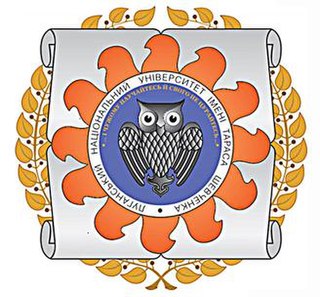
The University of Luhansk, is the oldest university in Donbas region and has a reputation as one of Ukraine's most prestigious universities. Following the 2014 pro-Russian unrest in Ukraine and the establishment of Luhansk People's Republic (LPR), two independent institutions claim to represent this university. One continues to operate in the same campus as before in Luhansk, while the other operates from Ukraine-controlled Starobilsk.

Education in Azerbaijan is regulated by the Ministry of Education of Azerbaijan.

The 9th Gymnasium (Simferopol) or officially Gymnasium No.9 of Simferopol municipality Autonomous Republic of Crimea with the profound study of English was organized in 1990 on the basis of a school with a study of a range of subjects in English. It is a general educational institution of academic level, humanities- and linguistics-oriented; it is aimed at a more comprehensive development of the students' intellectual abilities. The school implements differential-individual approach to students.
Higher education in Ukraine operates several levels, all of which are regulated by the Ministry of Education and Science of Ukraine. In early 2016, Ukraine had 802 universities, but the Ministry intends to lower that number to 317. In 2016-17, the number of students in higher education was 1,586,700.
Armenians have maintained a presence in the Crimea since the Middle Ages. The first wave of Armenian immigration into this area began during the mid-eleventh century and, over time, as political, economic and social conditions in Armenia proper failed to improve, newer waves followed them. Today, between 10 and 20 thousand Armenians live in the peninsula.
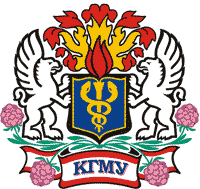
Medical Academy named after S.I. Georgievsky of Vernadsky CFU' is the institution of higher medical education situated in Simferopol (Crimea). According to some independent estimations it is one of the most prominent medical schools of the Ukraine. The university has 6 faculties and 54 departments. As at 2009, 4700 students are studying here. The university was decorated with Order of the Red Banner of Labour (1981) and is certified by the International Education Society as AA-level high school.

Leningrad Secondary Art School was established in 1934 as the first art school for gifted children.
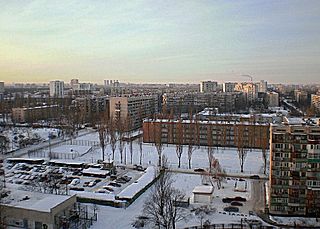
The 189th Secondary School or officially Comprehensive Secondary School No.189 with deep learning of English and German from the first grade of Desna raion of Kyiv municipality is an ordinary public school which provides compulsory and specialized education.
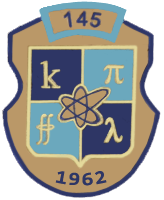
The 145th Natural Science Lyceum, officially known as Kiev Natural-Scientific Lyceum No. 145, is a secondary educational institution, located in Pechersk District of Kiev, Ukraine. The program of study emphasizes Physics, Mathematics, Computer Science and Chemistry.

Ukrainian Academy of Banking of the National Bank of Ukraine is a state-owned higher educational institution within the system of the National Bank of Ukraine of the IVth level of accreditation. It is located in the city of Sumy, in the north-eastern part of Ukraine.

The Kyiv National University of Trade and Economics is a university in Ukraine.

The National Pedagogical Dragomanov University is a Ukrainian University in Kyiv, which has III-IV accreditation level.
Pavlo Tychyna Uman State Pedagogical University is a Ukrainian university in Uman.

External independent evaluation or External independent testing - examinations for admission to universities in Ukraine. Complex organizational procedures aims to determine the level of academic performance of secondary schools during their admission to higher education. The purpose of external evaluation: improving public education and implementation of Ukraine's constitutional rights to equal access to quality education, monitoring of compliance with the State Standard of secondary education and the analysis of the education system, predict its development. The results of external testing results are counted as a state of final attestation and the results of entrance examinations to higher educational institutions. Since 2004, with the support of international NGOs and external testing system is formed in Ukraine. Provision of external evaluation carried out by the Ukrainian Center for Educational Quality Assessment in partnership with local education authorities, Regional Institute of Postgraduate Education, educational institutions.
Sergey Skabelkin is an entrepreneur, expert in the banking sector, business architect of online banking. Skabelkin is an expert on the subject of blockchain technologies, cryptocurrency and regulations of crypto market, and the future of traditional banks. Skabelkin in an adviser on the ICO launching, active mentor for FinTech startups, jury participant in numerous meet-ups and hackathons.


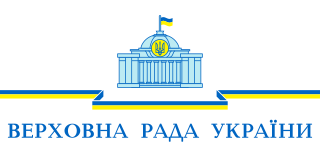
![Autonomous Republic of Crimea administrative division of Ukraine since 1992, not occupying the whole peninsula [see Q15966495 for Russian subdivision proclaimed in 2014]](https://upload.wikimedia.org/wikipedia/commons/thumb/a/aa/Flag_of_Crimea.svg/320px-Flag_of_Crimea.svg.png)




